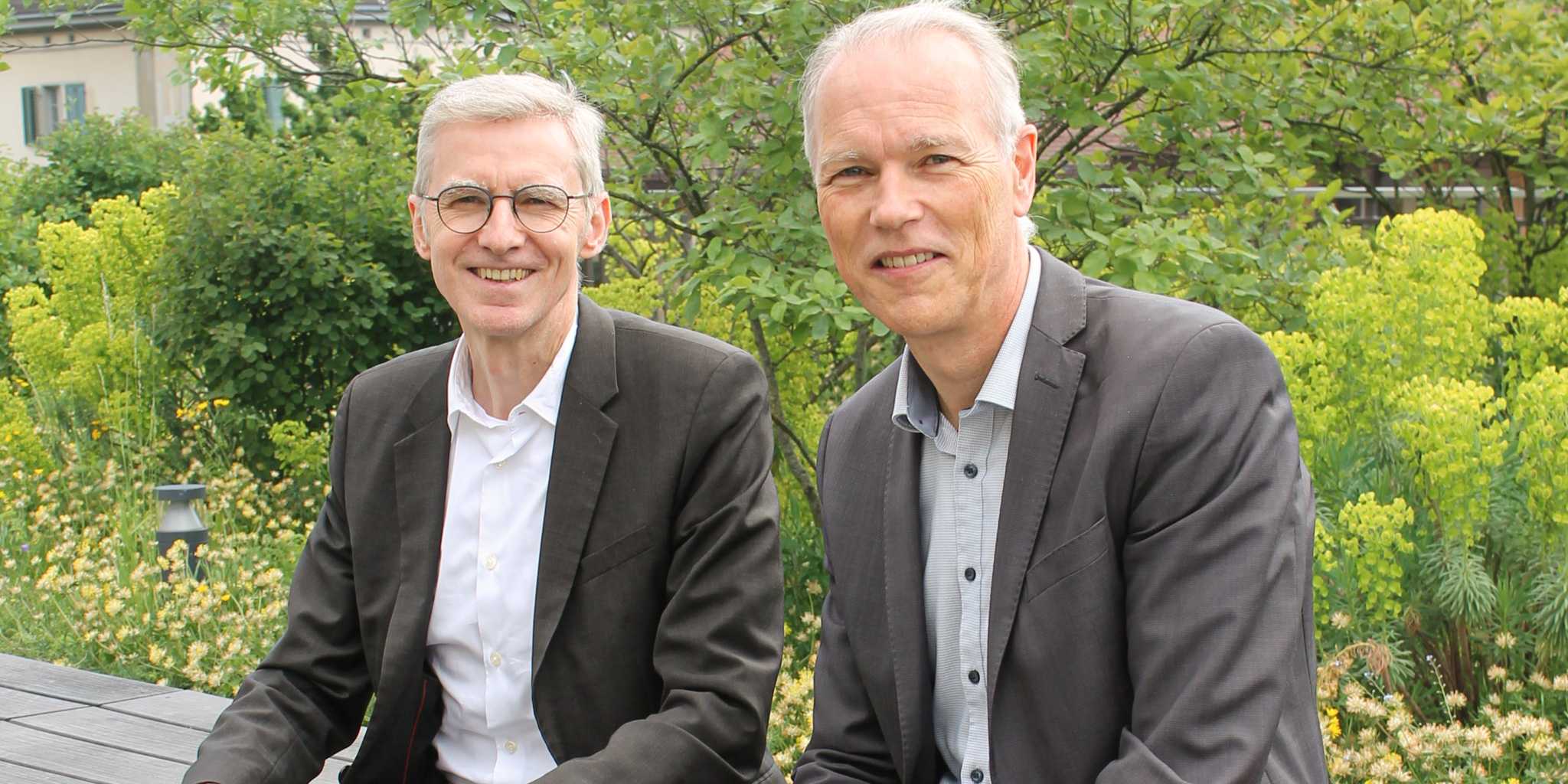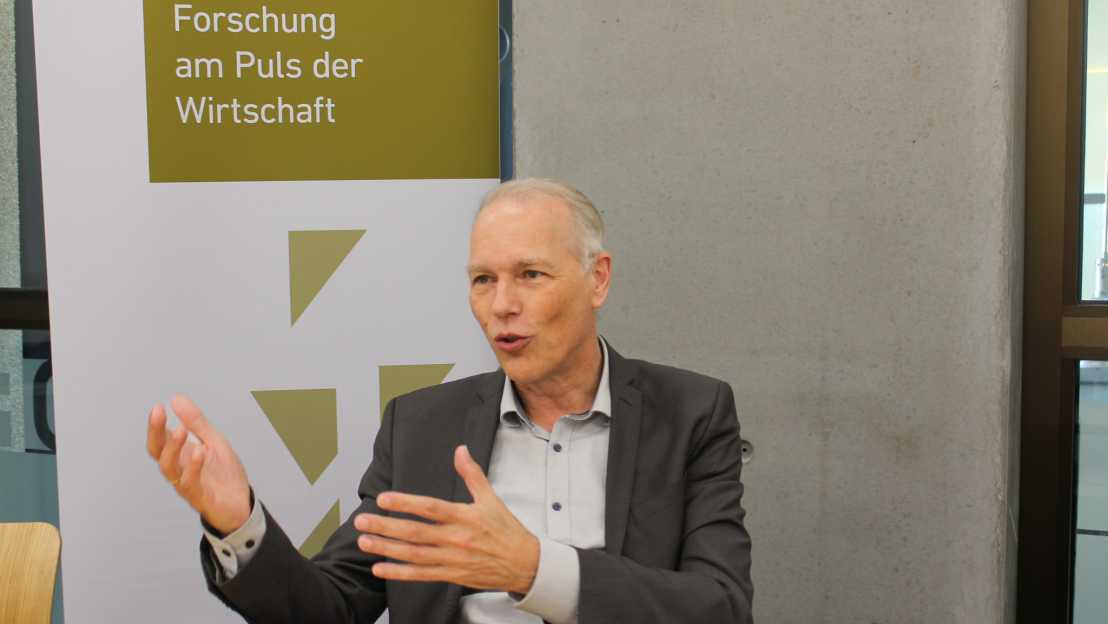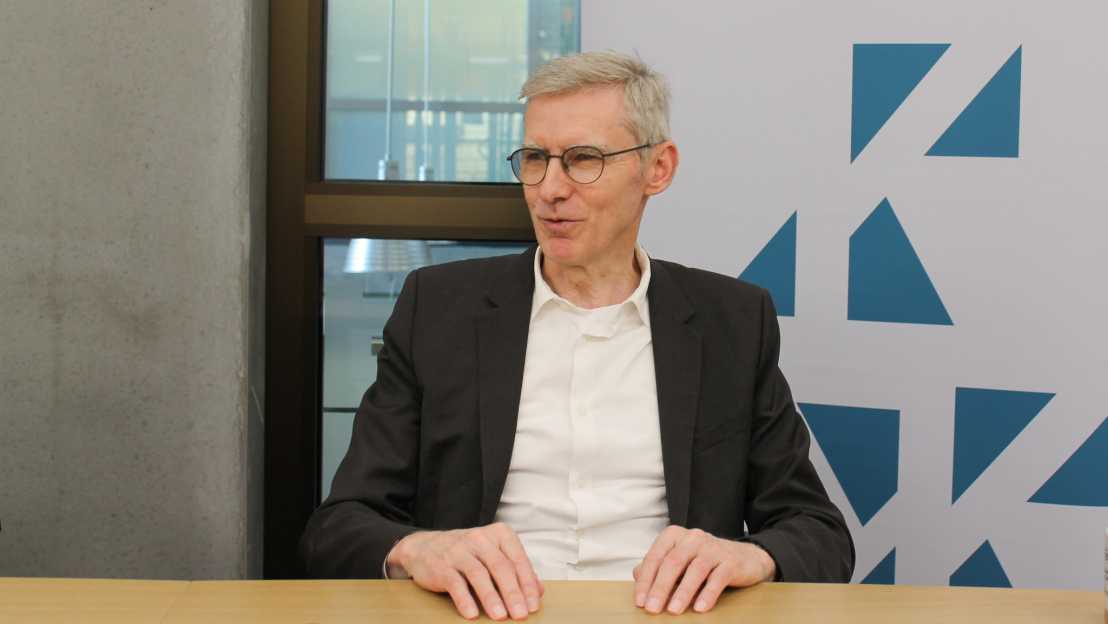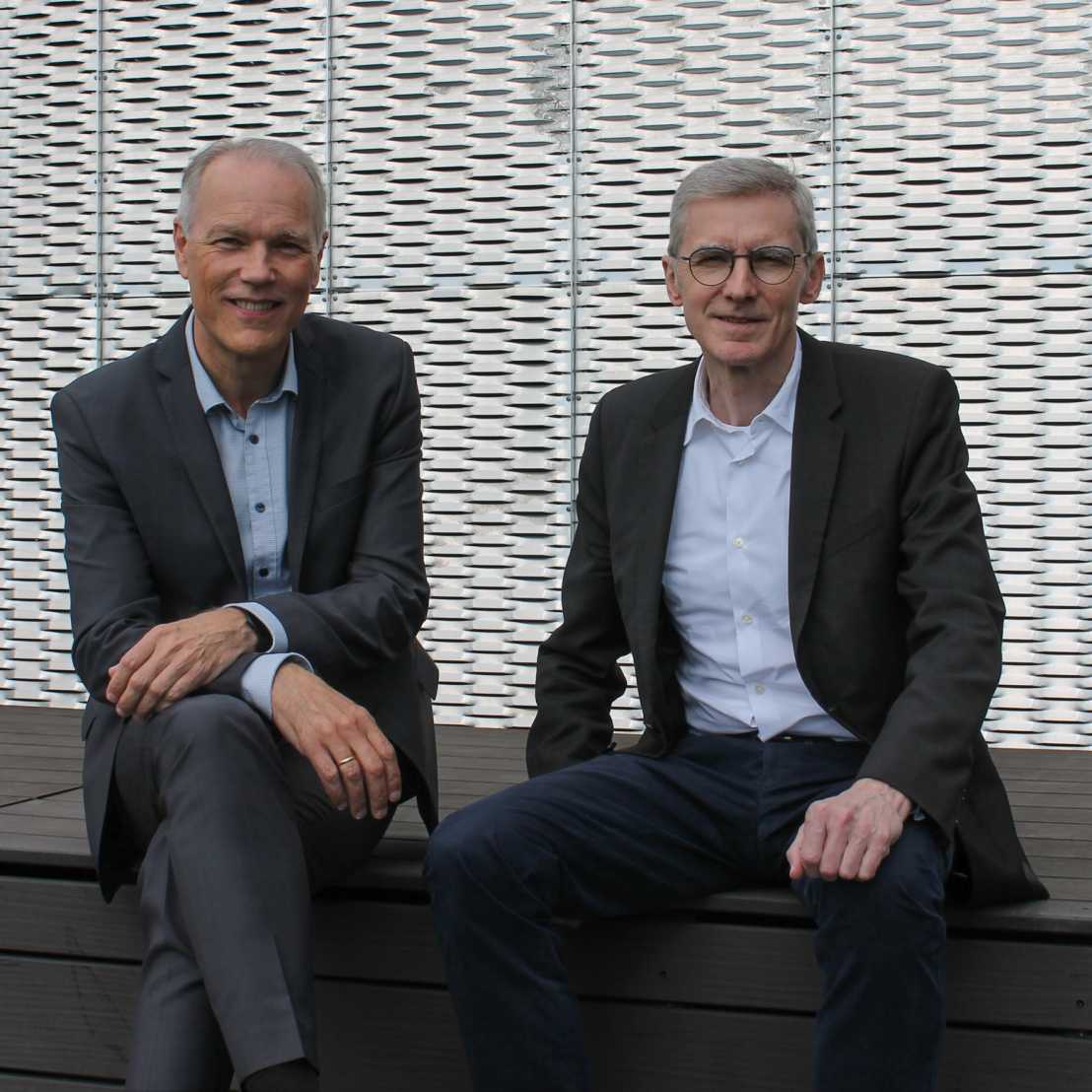
In this interview, KOF directors Jan-Egbert Sturm and Hans Gersbach look back on 2024, analyse the state of the global economy and discuss the major challenges in 2025.
Looking back, what is your assessment of last year?
Jan-Egbert Sturm: I became increasingly aware of the depth of the economic crisis in Germany over the course of 2024. As we now know, the adverse trend in Germany is of a structural nature and goes far beyond an economic dip. This naturally has a major impact on Switzerland, as Germany is our most important trading partner. The election of Donald Trump as US president was also a turning point, although actual changes will not materialise until 2025. Within KOF, the switch from our analysis to a new, more modern and contemporary format for our quarterly economic reports was important to me. We wanted to move with the times and address our target groups better. I believe we have succeeded in this. At the same time, we have supplemented our traditional forecasting model with new methods.
Hans Gersbach: As far as KOF is concerned, I was pleased that we managed to acquire new externally funded projects and expand our portfolio of methods and data. With regard to global economic conditions – in addition to the aforementioned policy issues – I was particularly concerned with the technological change brought about by artificial intelligence. The big question here is still how strong the impact on productivity will be and how high the risks are. Economists’ opinions differ on this.
You have already mentioned Germany’s economic situation. Is there reason to hope that the new CDU/CSU/SPD coalition government will be able to provide some impetus here?

Jan-Egbert Sturm: The political landscape has now changed. The planned fiscal stimulus in conjunction with major investment in the military and infrastructure could have a positive impact on the European economy. However, there is no guarantee that these measures will be implemented successfully.
Hans Gersbach: There are signs of hope for Germany. Many of these announcements are heading in the right direction in terms of economic policy. But now, as Jan-Egbert Sturm said, it’s all about delivery.
“Competition for third-party funding has intensified and projects are becoming increasingly larger.”Prof Jan-Egbert Sturm
How has competition for external funding changed in recent years?
Jan-Egbert Sturm: Competition for external funding has become even tougher. This forces us to focus on realistic and topical research issues. Although this is fundamentally a good thing, sometimes basic research has to take a back seat. There is also a trend towards larger research projects and, therefore, cooperation with other research institutes – including outside Switzerland. However, we are careful to ensure that KOF remains true to its principles and continues to be an independent, data-driven and evidence-based research institute.
What is your position on artificial intelligence (AI)?
Hans Gersbach: I am cautiously optimistic. AI has great potential. It will transform the economy, politics and society and will change our lives. But it also needs appropriate regulation to control the risks involved.
Jan-Egbert Sturm: I’m also more of an optimist. AI offers great opportunities, even if the associated risks need to be regulated by the state. We expect to see gradual improvements in productivity rather than gigantic leaps. It was similar with the introduction of computers and mobile phones. AI will provide positive stimulus, but it is not a panacea.

One particularly dynamic and innovative research area at KOF is the KOF Laboratory, or KOF Lab for short. How has the Lab 2024 evolved?
Hans Gersbach: We have set up further sections, so the KOF Lab 2024 has continued to grow. It has proved its worth as a career springboard for young researchers.
The KOF Lab comprises various sections ranging from the future of monetary systems to medium-term scenarios, inequality and the design of social policy. How do you reconcile all of these?
Hans Gersbach: In principle there are two approaches. Firstly, we work on structural and long-term models and data analysis in the KOF Lab. And, secondly, we have experts in specific sectors that are particularly important, such as healthcare or the monetary and financial system.
Jan-Egbert Sturm: Far from being a monolith, the Lab is interconnected with other areas at KOF. The trade model developed in the KOF Lab, for example, can help with economic forecasting, and the KOF Lab’s research on survey experiments can be linked to our economic surveys.
“We need to take another look at banking regulation. Many fundamental questions have yet to be answered definitively.”Prof Hans Gersbach
Credit Suisse’s history as an independent bank came to an end just over two years ago. Have we learnt the right lessons from these misguided events?
Hans Gersbach: The report by the Parliamentary Commission of Inquiry (PUK) and other reports have revealed many shortcomings. However, we need to go back over the books because many fundamental questions – regarding capitalisation, for example, and the general approach to solving the too-big-to-fail problem – have not yet been fully resolved and need to be reconsidered in light of geopolitical developments.
How do you assess the current geopolitical situation, especially with regard to the United States under Donald Trump?
Jan-Egbert Sturm: We are gradually moving away from a multilateral, rules-based system. The law of the jungle increasingly applies. Although we have been observing this trend for some time, it is being reinforced by Trump.
How does the unpredictability of politicians like Trump affect the preparation of economic forecasts?

Jan-Egbert Sturm: Uncertainty is currently high. In a situation like this, businesses are putting their investment plans on hold and consumers are postponing major purchases. This is not good for the economy. This political uncertainty means that we are increasingly outlining scenarios in our economic forecasts instead of just presenting a prediction.
What is your current view of monetary policy? Will we see negative interest rates in Switzerland again this year?
Hans Gersbach: That is certainly conceivable, especially as we currently have short-term interest rates just above 0 per cent.
Would that be a problem?
Hans Gersbach: Negative interest rates come with economic costs, as they can distort investment and make structural change more difficult. Negative rates are therefore not a scenario you want to aim for. However, Switzerland could cope with negative rates for a limited period of time.
What are KOF’s major challenges in 2025?
Jan-Egbert Sturm: From a forecasting perspective, the focus will be on analysing the current trade tariffs.
Hans Gersbach: Yes, together with possible further non-tariff trade restrictions and geopolitical disputes, although I hope that more economic common sense will return to the White House.
The interview was held by Dr. Thomas Domjahn and Anne Stücker, KOF Corporate Communications.
Contacts
Leonhardstrasse 21
8092
Zürich
Schweiz
Leonhardstrasse 21
8092
Zürich
Schweiz